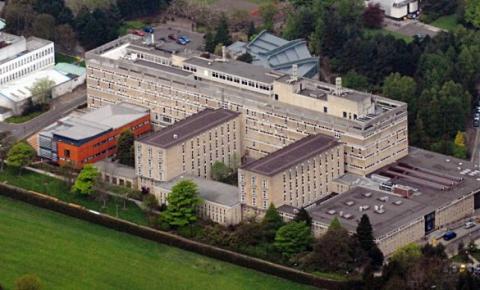The University of Edinburgh, School of Physics and Astronomy
Institute
The activities in the Institute for Particle and Nuclear Physics span both theory and experiment.
The Particle Physics Theory group is interested in fundamental physics at all energy scales from the scale of protons and neutrons, to the scale of particle colliders, and all the way to the energy scales of the very early universe at its first moment of existence. Researchers in the group are involved on the theoretical side of particle physics experiments at the LHC, and in observations made by the WMAP and Planck satellites.
They also pursue the very latest developments in both perturbative and nonperturbative field theory, renormalization theory, and the application of quantum field theory to other branches of physics such as the theory of turbulence and condensed matter systems. The Particle Physics Theory group is heavily engaged in the activities of the Higgs Centre for Theoretical Physics.
The experimental particle physics group seeks an understanding of the fundamental particles of nature and the interactions (forces) governing their behaviour. In particular, by attempting to understand the symmetries and conserved quantities present in the universe, we seek to explain the dominance of matter over anti-matter (study of CP violation at the LHCb experiment at CERN), and mechanisms of symmetry breaking (the ATLAS experiment) which lead to the creation of mass. Extensive distributed Grid computing (GridPP) is used to store and analyse the tens of petabytes of data that are produced by the LHC.
Complimenting the particle physics group, the nuclear physics group has a uniquely diverse range of interests, conducting research into the building blocks of Nature in a wide range of extreme environments. The properties of nuclei have their origins in the basic interactions of elementary particles, quarks and gluons, while the macroscopic evolution of stars and galaxies is directly related to the interactions between nuclei. Direct searches for Dark Matter are seeking to identify the dominant contribution to mass at the galactic and larger scales.


